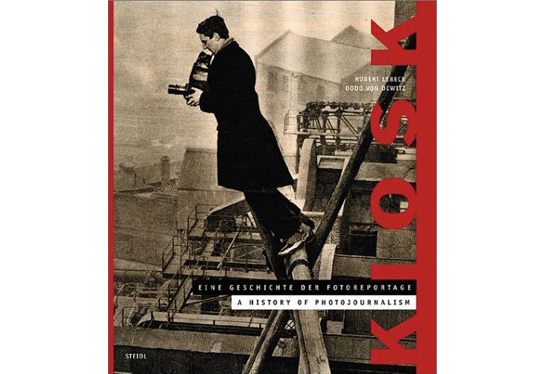Review: Kiosk - A History of Photojournalism
I do think that there is a crisis in photojournalism, but it has more to do with too many people thinking they can get something (photographs and stories) for nothing (without paying dedicated photographers to take those photos and work on those stories). That’s a business problem.

Photojournalism is in crisis. Or maybe not. Who knows? But photojournalism is part of our modern media, and those media love nothing more than a crisis, so, almost by definition photojournalism is in crisis (as is photography, which, however, is not talked about as “in crisis”, instead it’s supposedly “over” or “dead”). It’s the end of the world as we know it. You gotta adapt to new realities. Embrace the new media and what they have to offer. Don’t embrace the new media and stick to what you can do best. Well, you’ve heard it all before, ad nauseam. But let’s assume for a minute that we’re all very tired of the way those debates are currently playing out. (more)
Maybe there is something to be gained from looking at the past, instead of looking into the future. These days, you’re not supposed to look at the past, because there was no internet in the past (can you imagine?). If you don’t deal with the internet you’re a dinosaur - so what could the past possibly teach us?
Well, first of all, the past of photojournalism is a photographic treasure trove. While a lot of classic photojournalism is very well known, there still is plenty to be re-discovered. Second, and maybe crucially, if you look at the history of photojournalism, it’s tied to the history of the media, in particular the print media. You cannot understand photojournalism without knowing anything about history or broader cultural trends. But you also risk misunderstanding photojournalism if you don’t include the evolution of media in the story. If you think of photojournalism just in terms of, say, W. Eugene Smith essays in Life magazine, then of course once things change (aka once Life magazine is gone) there’s only crisis left. If, however, you look at the larger picture, you will probably see different things.
Make no mistake, I do think that there is a crisis in photojournalism, but it has more to do with too many people thinking they can get something (photographs and stories) for nothing (without paying dedicated photographers to take those photos and work on those stories). That’s a business problem. If you ignore that for just a moment, photojournalism has always changed and found ways to adapt to new media. Why would it suddenly be unable to adapt to the internet?
Kiosk - A History of Photojournalism is already a few years old, but it’s just the kind of book you want to get out of your bookshelf (or acquire to first peruse and then put on said shelf). It presents the history of photojournalism from 1839 until 1973, and no, that’s not a typo. It really is 1839. Kiosk chronicles the evolution of photojournalism as it changed in parallel with photography itself and with print media (and technologies). Or maybe you want to phrase it the other way around: The book chronicles the evolution of the kind of photography used in the different, changing, print media to convey news and news-related stories.
It does so by reproducing pages and pages of spreads from famous - and less well-known - newspapers and magazines, with everything separated into historical sections.
With large parts of the print media now moving to the internet who says photojournalism is ill-equipped to make that transition? Isn’t the internet an ideal medium for images? Doesn’t the internet even allow non-linear and interactive ways of story telling? Why would photojournalists, who can look back upon a long history of innovation, suddenly be unable to find new and interesting ways to tell their stories?
Seen in this light, isn’t the current crisis in photojournalism maybe just the consequence of corporate media treating photojournalism as a commodity that is supposed to follow the same rules as, say, ads?
Maybe I got it all wrong. Maybe photojournalism is doomed. Looking through Kiosk - A History of Photojournalism leaves me in an optimistic mood as far as photojournalism is concerned, though.
Kiosk - A History of Photojournalism, edited by Bodo von Dewitz, concept and selection by Robert Lebeck, bilingual edition (German/English), Steidl, 2002